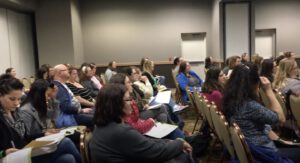‘Whipsawed’: Homeschool families with special needs face unique challenges in Kansas
Imagine living in a state where schools don’t provide adequate special needs services for your child – but if you don’t provide those services as their parent, those schools can prosecute…

Imagine living in a state where schools don’t provide adequate special needs services for your child – but if you don’t provide those services as their parent, those schools can prosecute you.
Such a dichotomy exists today, as the Home School Legal Defense Association (HSLDA) nonprofit explained in a recent case involving a Kansan family.
“Kansas is the worst of all possible worlds for a homeschool student with special needs,” said Scott Woodruff, HSLDA’s director of legal and legislative advocacy.
“In effect, officials say: ‘We don’t provide special needs services. But if you, the parent, fail to provide them, we’ll come after you.’ No other state whipsaws families like this.”
Defining homeschools by state law
The issue stems from the way Kansas legally defines homeschooling – non-accredited private schools, not homeschools per se.
While the law gives other private school students the right to access publicly funded special education services, homeschool students don’t enjoy that same privilege.
However, parents who leave the public school system are required to provide those services to their child even though they can no longer access those publicly funded services.
As a result, one Kansan family recently received a threatening letter from their local public school once they withdrew their child with special needs.
If the parents didn’t comply with the school’s prescribed therapies and services, they could be charged with truancy, investigated by the state Department of Children and Families or reported to the county prosecutor, the letter warned.
“It doesn’t matter who you are or how great an education you provide your child,” HSLDA Staff Attorney Amy Buchmeyer said. “Getting that kind of message from a school is frightening.”
This family reached out to HSLDA, which resolved the situation by contacting the district. Buchmeyer explained to local officials how the family didn’t want to continue services through the school, but instead had a plan to provide for their child’s special needs on their own.
Additionally, HSLDA highlighted the limits of Kansas law in explaining who will enforce the requirement for homeschool parents to provide special needs services.
“Is it the local school district? Some other state official? The law is not clear,” wrote Dave Dentel, the nonprofit’s newsletter editor.
‘Our kids deserve better’
Kansas public schools have come under fire in recent years from families frustrated with special needs services.
In one example, Amanda Thompson of Olathe, Kansas, even moved her son to Florida to find the help her children needed.
“My son had been screened by OPS (Olathe Public Schools) for dyslexia and wasn’t found to be bad enough to warrant bringing it to our attention,” she wrote in a statement. “I showed a fellow mama and she said his scores weren’t low enough. Help me understand: reading at a 1.5 grade level as a 12-year-old entering 6th grade (which should be 7th, but we held him back a year) isn’t low enough?”
Once Thompson’s son began an intensive educational program at the Morris Center in Ocala, Florida, his academic performance skyrocketed. He went from reading at a 1.5 grade level to a 6th-grade level with 95% accuracy, she said.
“Our kids deserve better,” she wrote. “They are not robots to be passed by and hope that they figure it out. There are programs out there that really work and need to be looked into.”



